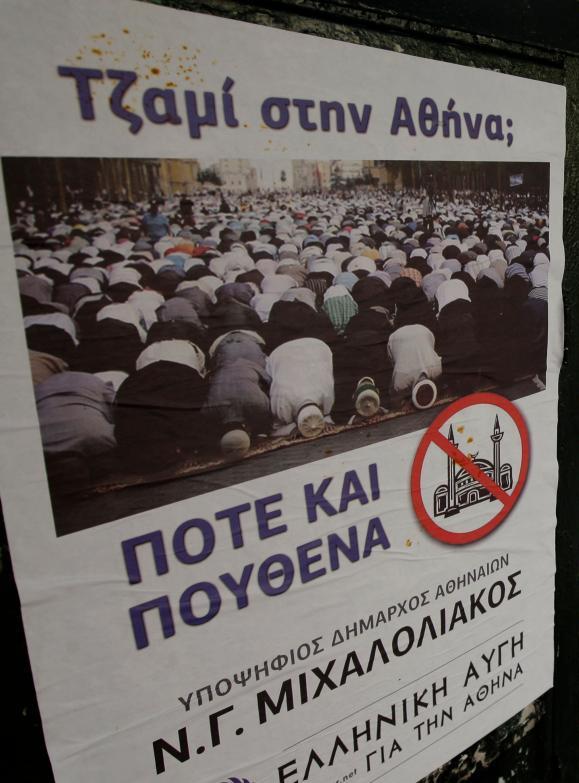A month after denying reports that Turkey will pay for the construction of Athens’ first official purpose-built mosque, the government has finally announced it will publish a tender for this long-awaited and controversial project.
The 1m euro tender will soon be published on the government’s Diavgeia website for the construction of a mosque (without minarets) on a vacant lot of a disused naval base in Eleonas, west of Athens.
Prime Minister Antonis Samaras is reportedly eager to move ahead with this project – after a seven-year delay, and after Turkish Prime Minister Recep Tayyip Erdogan reportedly offered to foot the bill during a recent meeting with the prime minister.
Athens is the only capital city among the 15 “older” European Union member states that does not have an official mosque. According to media reports, Samaras views the mosque as a way to justify a crackdown on more than 100 makeshift mosques.
The city’s Muslims – an estimated 120,000, mostly immigrants and refugees – pray at these makeshift mosques, many of them located in basement and groundfloor apartments.
More than a decade ago, the government had announced plans for a multimillion-euro Islamic centre and mosque in Peania, about 20km north of downtown Athens near the airport. It was to be entirely funded by King Fahd of Saudi Arabia.
Mounting opposition from politicians, the church and Peania residents forced a change of plans. Under a 2006 law, the planned mosque moved closer to Athens and King Fahd was completely sidelined. Parliament decided that the Greek state would not only own the property, but pay for the building of the mosque. Lawmakers also decided to appoint a committee of five government officials and two Muslim representatives to oversee the day-to-day running of the mosque. The imam will be appointed by the ministry of education.
Naim Elghandour, the chairman of the Muslim Association of Greece, which numbers more than 18,000 members, says he is “pleased” with the news.
“At last! We have never come as close to getting an official mosque in Athens as we are now,” he tells EnetEnglish. “We’ve been working very closely with officials at the education ministry all these years – since 2006 – trying to reach the best possible solution. And I am confident that this is the best that can be done as regards the location of the site. It’s close to Athens and very close to the metro which will make it easy for Muslims to get there.
“It’s an industrial area, which means we won’t have any residents nearby protesting,” he adds. “As for those on the far-right who claim the area will turn into a ghetto, this is outrageous because no Muslims will be moving into the area because there are no homes for them to move into.”
As regards the 120 makeshift mosques in Athens, Elghandour says he will propose that the ones in and around Athens be shut down as soon as the official mosque opens its doors.

